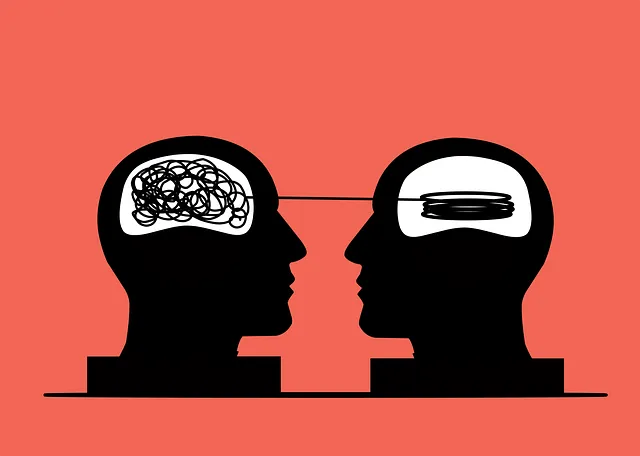Arvada Kaiser Permanente (AKP) is revolutionizing mental wellness through digital tools, addressing a growing need identified in market analysis. Their user-friendly apps offer accessible behavioral health services for anxiety relief, positive thinking, and more. AKP's holistic approach integrates mood tracking, meditation guides, CBT techniques, virtual counseling, and community forums into their app design. This comprehensive strategy aims to empower users with self-care practices while fostering connections within a supportive community. The development of mental wellness apps should mirror AKP's focus on research, evidence-based practices, engaging interfaces, personalized content, regular updates, and robust risk management for optimal user engagement and retention.
Mental wellness apps are transforming personal care, especially in the digital age. With a growing demand for accessible and affordable support, this article explores the development of such apps, focusing on the market analysis of Arvada Kaiser Permanente Behavioral Health Services as a benchmark. We’ll delve into designing effective features, development strategies, and user engagement tactics. By understanding the needs of users like those served by Arvada Kaiser Permanente, developers can create impactful mental wellness solutions.
- Understanding the Need for Mental Wellness Apps: A Market Analysis of Arvada Kaiser Permanente Behavioral Health Services
- Designing Effective Mental Wellness Features and Tools
- Development Process and Implementation Strategies for User Engagement
Understanding the Need for Mental Wellness Apps: A Market Analysis of Arvada Kaiser Permanente Behavioral Health Services

In today’s fast-paced world, mental wellness has emerged as a paramount concern, driving the demand for accessible and convenient solutions. The market analysis of Arvada Kaiser Permanente Behavioral Health Services underscores this growing need. As a leading healthcare provider, AKP recognized the potential of digital tools to extend their services beyond traditional therapy settings. By developing user-friendly mental wellness apps, they aim to reach a broader audience seeking support for various issues, from anxiety relief to fostering positive thinking.
The implementation of a Community Outreach Program is a strategic move by AKP to engage and educate individuals within the community. This initiative ensures that mental wellness resources are not only readily available but also tailored to diverse needs. With an increasing awareness about the importance of mental health, apps designed to offer personalized guidance and support are gaining popularity. By leveraging technology, Arvada Kaiser Permanente Behavioral Health Services is at the forefront of revolutionizing access to behavioral health services.
Designing Effective Mental Wellness Features and Tools

In designing effective mental wellness features for an app, it’s crucial to incorporate tools that cater to various aspects of behavioral health services. Arvada Kaiser Permanente’s approach to behavioral health emphasizes a holistic view of mental wellness, focusing on stress management and reduction methods as core components. Incorporate features like mood tracking, meditation guides, and cognitive-behavioral therapy (CBT) techniques to empower users with self-care practices. These tools should be intuitive, allowing individuals to set personalized goals and monitor their progress over time.
Additionally, the app can facilitate connections with professionals through virtual counseling sessions or access to a community forum where users share stress reduction methods they’ve found effective. By blending interactive elements with educational content on mental wellness, the app becomes a dynamic resource for those seeking improved well-being. This comprehensive approach aligns with Arvada Kaiser Permanente’s commitment to providing innovative behavioral health services accessible to all.
Development Process and Implementation Strategies for User Engagement

The development process of a mental wellness app should be comprehensive and user-centric, aligning with Arvada Kaiser Permanente behavioral health services’ standards. It begins with understanding the target audience’s needs through research and feedback collection, ensuring the app caters to diverse mental health concerns. The design phase involves creating intuitive interfaces that promote engagement while incorporating evidence-based practices for stress reduction, anxiety management, and mood tracking, similar to what is seen in Risk Assessment for Mental Health Professionals tools.
Effective implementation strategies focus on fostering user engagement through gamification features, personalized recommendations, and interactive content tailored to individual progress. Regular updates based on user feedback and recent research in behavioral health are crucial. Incorporating features that support Self-Esteem Improvement can enhance user retention. Additionally, integrating a robust risk management planning component for mental health professionals ensures the app adheres to best practices in handling sensitive data, reflecting a commitment to both user privacy and effective treatment delivery.
The development of mental wellness apps, as evidenced by the market analysis of Arvada Kaiser Permanente Behavioral Health Services, is a growing necessity in today’s digital age. By understanding the unique needs of users and incorporating effective features like mindfulness exercises, cognitive-behavioral therapy tools, and community forums, developers can create powerful resources for improving mental health. A successful development process involves user-centric design, iterative testing, and strategic implementation to ensure engagement and positive outcomes. With the right approach, these apps have the potential to revolutionize access to behavioral health services, much like Arvada Kaiser Permanente has done on a larger scale.

